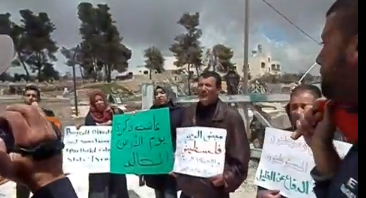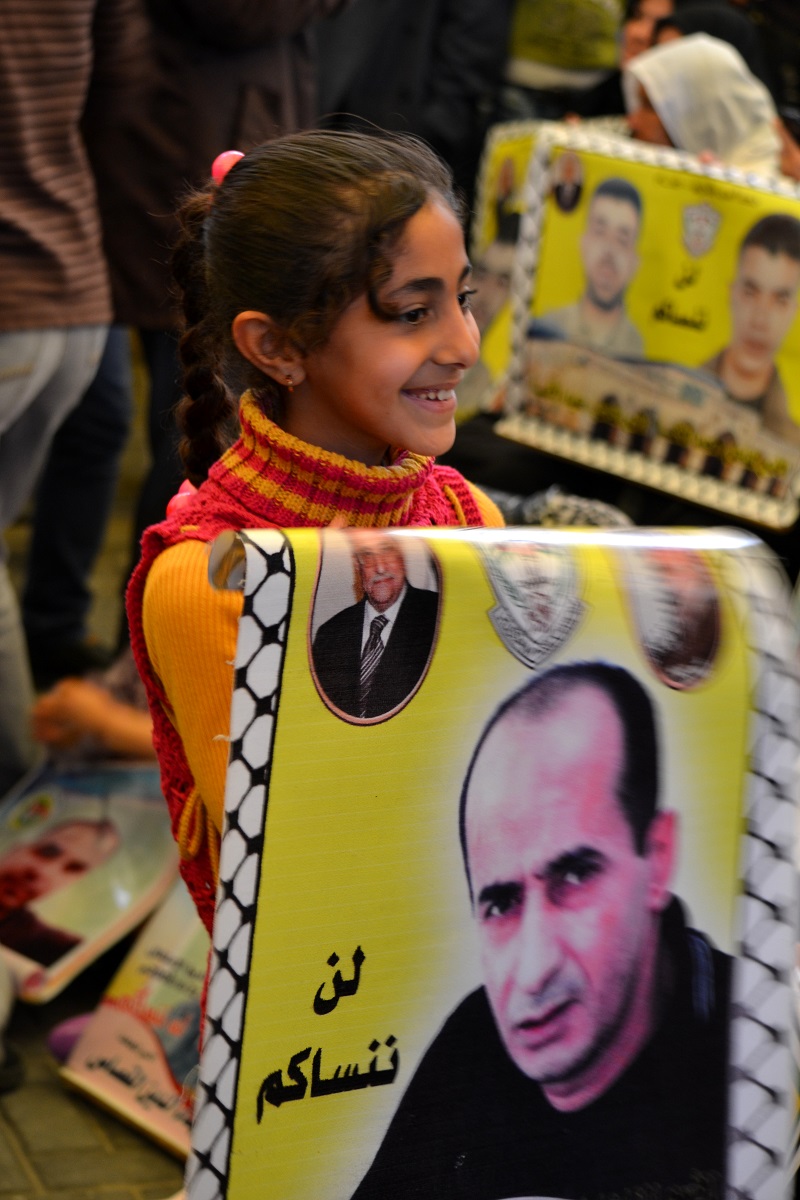Category: Reports
-
Demonstration against settlement expansion in Hebron
30th March 2014 | International Solidarity Movement, Khalil Team | Hebron, Occupied Palestine At noon today approximately 50 protesters held a demonstration outside the Rajabi Building, Hebron, in protest of the recent court decision to let settlers take over the building. Settlers taking over the house would mean a huge expansion of the illegal settlement…
-
PHOTOS: Gaza calls for the rights of Palestinian prisoners and the freedom of Ahmad Sa’adat
27th March 2014 | International Solidarity Movement, Rosa Schiano | Gaza, Occupied Palestine On Monday, at the International Committee of the Red Cross in Gaza City, the weekly rally in solidarity with Palestinian prisoners in Israeli jails saw the participation of many prisoners’ families, released prisoners, and international and Palestinian activists. Each week, the rally focuses on certain topics, ranging…
-
“Soldiers opened fire at our boat and engine. We were about to sink”
21st March 2014 | International Solidarity Movement, Rosa Schiano | Gaza, Occupied Palestine On Tuesday, 11th March, Israeli naval forces arrested two Palestinian fishermen and confiscated their fishing boat off the coast of Gaza City. The two cousins, Shabaan Abu Ryala (33) and Jihad Abu Ryala (24), both from al-Shati (“Beach”) refugee camp, went to fish at 7:00…



